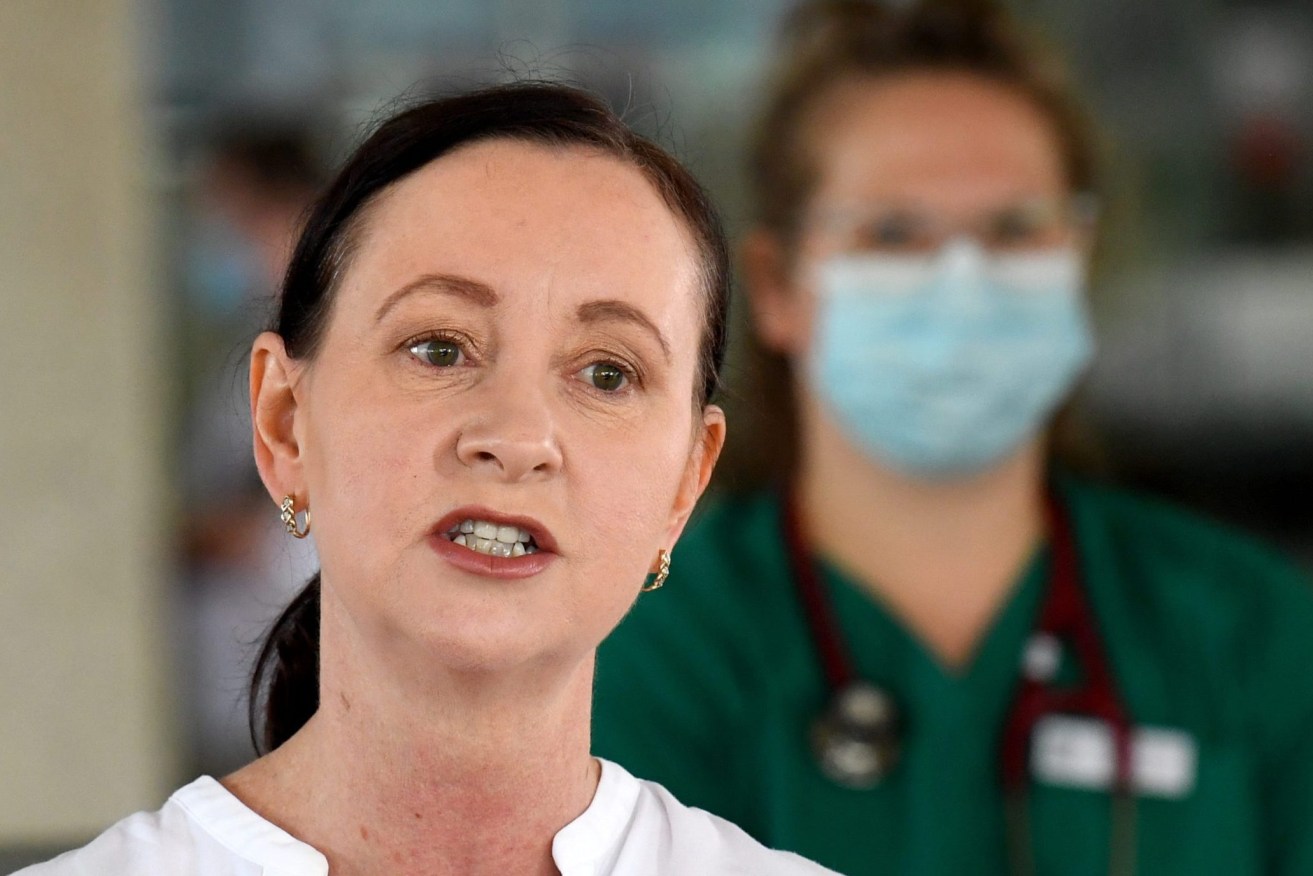Up in arms: Doctors furious at Health Minister’s pharmacy move
Health Minister Yvette D’Ath attended a summit in Brisbane aimed at resolving health workforce shortages on the same day she silently dropped a bombshell order in Parliament that infuriated doctors now warn could further erode medical services on the frontline.


Queensland Health Minister Yvette D'Ath. (AAP Image/Darren England)
Senior doctors such as AMA Queensland president Maria Boulton say D’Ath gave no indication when she attended the Queensland Health meeting that she had tabled an executive order that would extend services normally reserved for doctors to pharmacists.
From October 1 pharmacists across Queensland will be able to consult with women to diagnose and treat their urinary tract infections (UTIs). Pharmacists, who played a key role in delivering Covid and flu vaccines, will also have the schedule of vaccines they can administer widened.
Enlarging the clinical portfolio to professionals outside of doctors is called extending “scope of practice”. The subject formed a major part of the agenda at last week’s Queensland Health workforce summit at Bowen Hills attended by every key medical stakeholder throughout the state.
An incredulous Boulton said it was a missed opportunity to have further dialogue on the plans the government currently has at foot.
“It was disappointing to hear the Health Minister tabled this legislation on the same day as hosting the Health Workforce Summit, which I attended, but didn’t tell any of the summit attendees it was being tabled despite ‘extended scope of practice’ being one of the issues raised at the summit,” Boulton told InQueensland.
D’Ath’s directive comes after a long campaign by Queensland’s peak medical groups under the GP Alliance umbrella to have the controversial program scrapped.
GP Alliance chair Dr Matt Masel, who also heads the Rural Doctors Association of Queensland, said it was “a real worry” that D’Ath appeared determined to proceed with her plan against medical advice.
“In spite of our careful and considered representations to the Minister and the Director-General (Queensland Health) in which we’ve expressed repeatedly our serious concerns, this now appears to be going ahead,” Masel said.
The launch of the scheme comes after a pilot programme overseen by QUT drew criticism from doctors who said the process lacked scientific rigour.
“The Queensland Government’s UTI trial is finished and is now being made permanent. However, that does not mean the UTI trial was a success,” Boulton said.
“We still have grave concerns about patient safety. We’ve raised – and continue to raise – those concerns with the Health Minister, QUT and the Health Ombudsman.”
In addition to providing UTI treatments, pharmacists are also in line for more responsibility.
A separate, yet-to-be-finalised initiative, the North Queensland Pharmacy Scope of Practice Pilot, aims to allow pharmacists to diagnose and treat a wider cross section of conditions, from diabetes to lung diseases.
A Queensland Health spokesperson said both initiatives were being pursued to give patients easier access to primary care and alleviate workload pressures on GPs.
“Pharmacists have always been an integral part of healthcare delivery,” the spokesperson said.
“With pressure mounting on the public health system and primary health sector, it makes sense to make better use of their expertise when it is safe and appropriate to do so.”
Boulton said the state government was “pressing ahead with a dangerous experiment”.
“This will allow pharmacists in north Queensland to diagnose, prescribe and sell medications for 23 serious conditions with no medical oversight, after just 120 hours of unsupervised online training,” she said.
“Doctors’ groups have not been told when this new pharmacy trial will start, which communities will be involved or how the trial will work – including any processes for reporting complications or ensuring all patients are followed up.
“Patients and doctors deserve to be fully informed about this trial because this trial puts patient safety at risk.”
As a working rural GP in the town of Goondiwindi, Masel is concerned that more patients seeking treatment from pharmacists could mean more complex conditions might go undiagnosed and untreated.
He is also worried about how far the state government has gone to alter the guidelines governing the prescription of ‘schedule 4’ medicines, such as antibiotics to treat infections.
Schedules of medications are outlined in the federal poisons regulation and enacted by individual state legislation.
Schedule 4 is a medicine which requires a prescription, but ultimately states determine who is authorised to prescribe.
If the state government allows some listed medications to be dispensed without a prescription, they can use a legislative instrument called an extended practice authority (EPA).
Masel said the EPA is usually applied in “very specific hospital settings”, such as allowing midwives to provide a single dose of pain killer or antibiotic during labour.
“This EPA allowing pharmacists to sell a full course of a schedule 4 antibiotic without a prescription seems significantly broader than other examples I am aware of,” he said.
“I do not know if the government will apply the same instrument to the north Queensland trial or some other way.
“Either way, the Queensland GP Alliance has provided advice to the Minister that we do not believe it should go ahead.
“It removes the separation of prescribing and selling of drugs, it fragments care, it is not being run as a proper clinical trial, and it does not address workforce shortages.”











